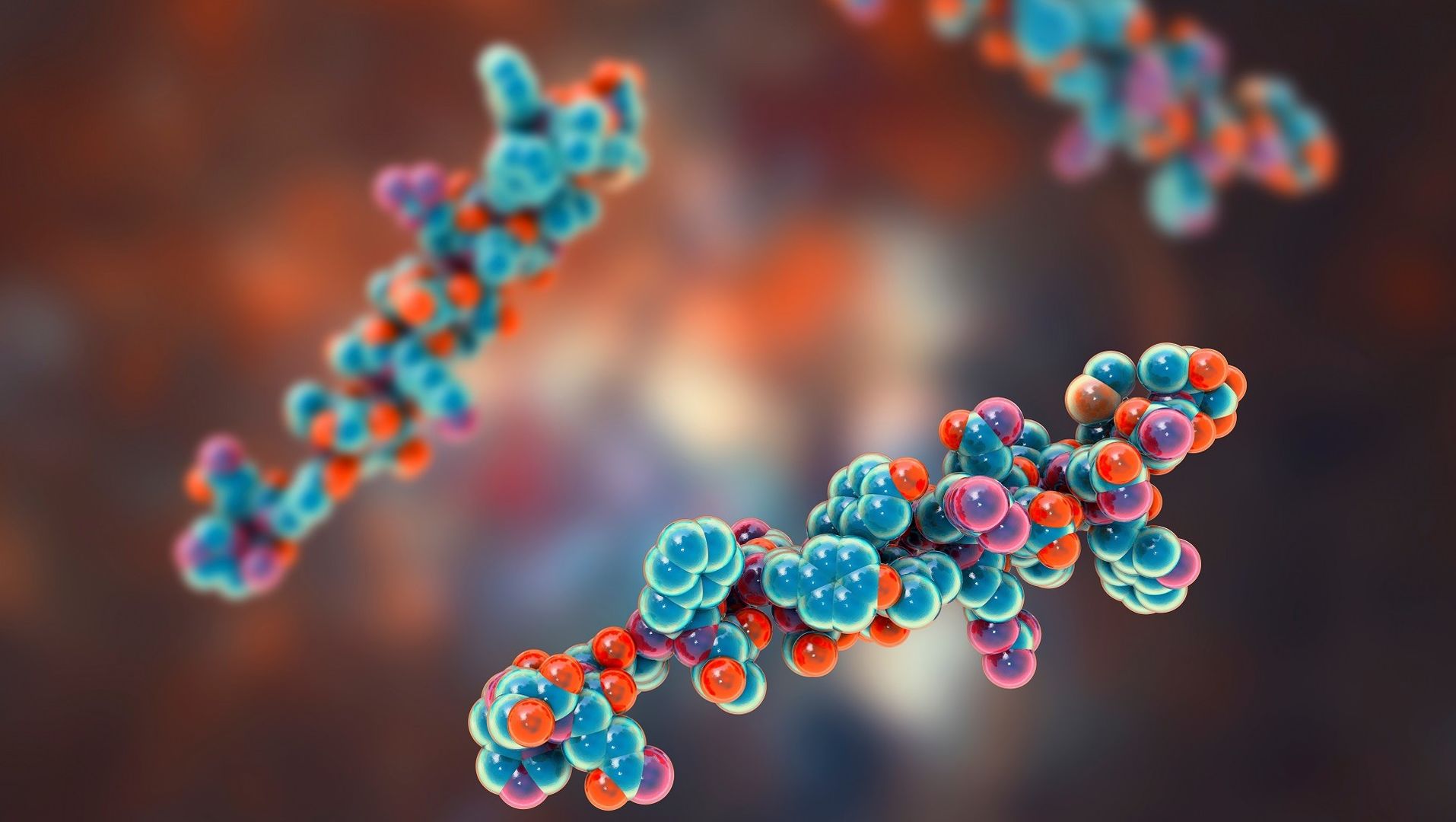Creative Proteomics is a prestigious provider of avant-garde services for the identification of MHC-binding peptides. Our proficient team employs sophisticated analysis techniques and cutting-edge instrumentation to precisely forecast peptides capable of binding to Major Histocompatibility Complex (MHC) molecules. Comprehending the interplay between peptides and MHC molecules holds paramount importance for investigating immune responses, developing vaccines, and uncovering potential epitopes. Through our comprehensive services, we aid researchers and industries in acquiring invaluable knowledge regarding MHC-peptide interactions, empowering them to make enlightened choices and foster ingenuity across diverse domains.
What is Identification of MHC-binding Peptides?
Identification of MHC-binding peptides pertains to the process of discerning the specific antigens capable of forming intricate associations with MHC molecules. MHC molecules, possessing a pivotal role in presenting antigens to T cells, serve as integral components of immune responses. There exist two primary classifications of MHC molecules: MHC class I and MHC class II. While MHC class I molecules present antigens derived from intracellular pathogens to cytotoxic T cells, MHC class II molecules engage in presenting antigens derived from extracellular pathogens to helper T cells. The identification of MHC-binding peptides encompasses a series of interconnected stages.
Identification of MHC-binding Peptides by Creative Proteomics
- Peptide-MHC Binding Affinity Prediction
- Utilization of computational models to predict peptide-MHC binding affinity.
- Screening of large peptide libraries to identify potential MHC-binding peptides.
- Assessment of peptide-MHC interaction strength through binding affinity scores.
- Generation of binding predictions for different MHC alleles and peptide lengths.
- Epitope Mapping
- Identification of specific regions or epitopes within a protein sequence that can bind to MHC molecules.
- Prediction of MHC-binding peptides within proteins of interest.
- Determination of epitope conservation across different strains or species.
- Prioritization of potential epitopes for vaccine development or targeted therapy.
- T-cell Epitope Prediction
- Prediction of T-cell epitopes that can elicit immune responses.
- Assessment of peptide-MHC interactions specific to T-cell receptors.
- Evaluation of peptide immunogenicity and antigenicity.
- Identification of potential therapeutic targets for immune-related disorders.
- High-throughput Screening: We can provide assistance in the high-throughput screening of extensive peptide libraries to discern potential MHC-binding peptides. Our cutting-edge technology and sophisticated bioinformatics tools can expedite the screening process and facilitate data analysis.
- Bioinformatics Analysis: Our team offers in-depth bioinformatics analysis to anticipate and assess the binding affinity between MHC molecules and peptides. Leveraging machine learning algorithms and databases comprising documented MHC-binding peptides, we can furnish valuable insights into the potential immunogenicity and antigenicity of the identified peptides.
Analysis Techniques and Instrumentation of MHC-binding Peptides Identification
- High-Throughput Sequencing
Our scientists use next-generation sequencing (NGS) technology to screen peptide libraries at scale.
- Mass Spectrometry
Our scientists utilize mass spectrometry for proteomic analysis and identification of MHC-binding peptides.
- Thermo Scientific Orbitrap Fusion Lumos
- Waters Xevo TQ-XS
- Agilent 6546 LC/Q-TOF
- Illumina Sequencing Systems
- Illumina NovaSeq 6000
- Illumina HiSeq X Ten
- Illumina MiSeq
- Flow Cytometry Systems
- BD FACSymphony A5
- Beckman Coulter CytoFLEX
- Sony SH800S
- SPR (Surface Plasmon Resonance)
Our scientists use SPR to analyze peptide-MHC binding interactions in real-time.
- Biacore T200
- ProteOn XPR36
- IBIS-MX96
Results and Reports
- Trace elements determination data
- Custom analysis report
- Experimental procedure
- MS raw data files and MS data quality checks
Our comprehensive analysis enables researchers to gain valuable insights into MHC-peptide interactions, driving advancements in immunology, vaccine development, and targeted therapy. With customizable services and accurate predictions, Creative Proteomics is the ideal partner for researchers and industries seeking in-depth analysis of MHC-binding peptides. If necessary, please contact us.
* For research use only. Not for use in diagnostic procedures!
Our customer service representatives are available 24 hours a day, 7 days a week.


